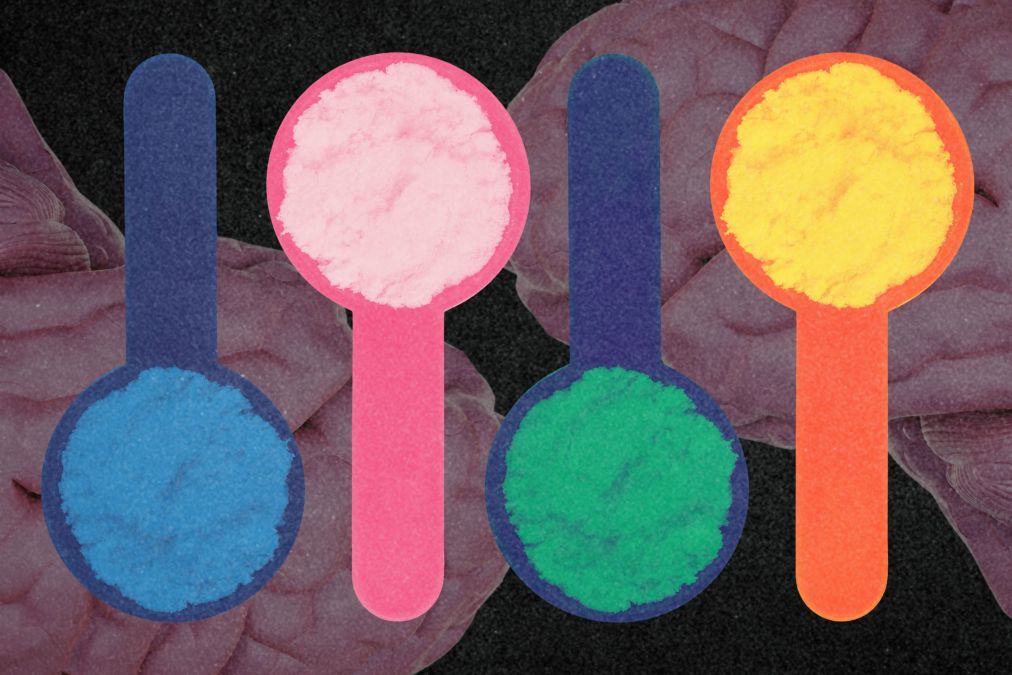Recent research indicates that creatine, a supplement commonly associated with muscle performance, may also play a significant role in enhancing cognitive function. As the demand for energy solutions grows, particularly in technology hubs like Silicon Valley, the necessity of understanding the energy needs of human brains becomes increasingly relevant. The brain consumes about 20% of the body’s resting energy, prompting scientists to investigate creatine’s potential benefits for mental acuity.
Creatine is an organic compound that is produced naturally in the body and can also be obtained through dietary sources. It is known for its role in nourishing cells by supporting energy production. Traditionally studied for its effects on physical performance, researchers are now turning their attention to whether this supplement can bolster cognitive resilience against challenges such as head injuries, stress, and age-related decline.
Understanding Creatine’s Role in Energy Production
Creatine functions primarily by replenishing adenosine triphosphate (ATP), the main energy carrier in cells. When ATP is utilized, it loses a phosphate molecule, which creatine can replace, effectively recharging the energy supply. This rapid energy restoration occurs billions of times per second during demanding tasks, including those requiring intense mental focus.
As people age, their ability to utilize creatine for energy diminishes, leading to various cognitive dysfunctions. Mitochondria, the cellular powerhouses, can weaken, while inflammation and oxidative stress may overwhelm brain cells, contributing to cognitive decline. According to Matthew Taylor, an associate professor at the University of Kansas Medical Center, creatine supplementation might help maintain brain metabolism before cognitive issues arise.
Dietary Sources and Supplementation
While creatine is found in high concentrations in certain meats—such as tuna, salmon, and red meat—most dietary creatine is directed to muscle rather than the brain. Therefore, achieving cognitive benefits through diet alone would require consuming excessive amounts of these foods.
Research has shown that vegetarians can achieve similar levels of brain creatine as meat-eaters, likely due to the brain’s ability to produce its own creatine. However, studies indicate that when vegetarians increase their creatine intake through supplementation, they may experience improvements in short-term memory.
Standard creatine supplementation typically involves a daily dosage of five grams, which is equivalent to the amount found in approximately five pounds of cooked chicken. Some researchers suggest that higher doses may be more effective for cognitive enhancement, particularly given the challenges posed by the blood-brain barrier, which limits the substances that can access the brain.
Darren Candow, a professor at the University of Regina, advocates for higher daily doses, noting that muscle cells absorb creatine efficiently, allowing any excess to benefit the brain. However, Mark Tarnopolsky of McMaster University advises caution, especially for long-term use, suggesting that a lower daily dose may be more appropriate over a lifetime.
Research also indicates that creatine supplements may help mitigate cognitive decline associated with aging. Animal studies suggest that creatine may protect against mitochondrial DNA damage, particularly in brain regions responsible for memory.
Potential Benefits and Risks of Creatine Supplementation
While evidence supporting the cognitive benefits of creatine is still emerging, some studies have reported improved short-term memory and reasoning abilities in healthy young individuals. For instance, young adults experiencing sleep deprivation performed better on memory tests when taking 25 grams of creatine.
There is also some indication that creatine could reduce the severity of strokes and mild head injuries by improving brain energy metabolism. Taylor references a small pilot study where Alzheimer’s symptoms improved with a daily dosage of 20 grams, although he notes that more extensive research is necessary to confirm these findings.
The safety profile of creatine has been extensively studied, with minimal side effects reported at lower doses. The most researched form, creatine monohydrate, is generally well-tolerated, although higher doses may lead to potential complications. For example, in rare cases, excessive doses in children with impaired creatine synthesis have resulted in kidney stones. However, the notion that creatine supplementation causes kidney damage in healthy users is largely considered a myth.
Experts recommend consuming creatine powder mixed with liquids, preferably alongside a small meal to mitigate any possible gastrointestinal discomfort.
Looking ahead, researchers like Stacey Ellery at the Hudson Institute of Medical Research are investigating the potential benefits of creatine supplementation during pregnancy, as it may support fetal brain development. Additionally, there is interest in whether creatine could alleviate mood disorders, particularly postpartum depression.
While preliminary evidence suggests that creatine may offer cognitive advantages, experts agree that the most effective way to maintain brain health remains a balanced lifestyle that includes regular exercise, a nutritious diet, and stress management. Taylor emphasizes, “Creatine could provide added value, but it will never supersede the impact of a healthy lifestyle.”





































































